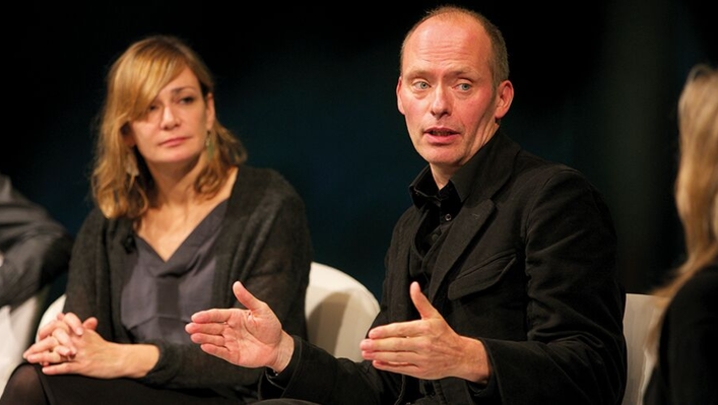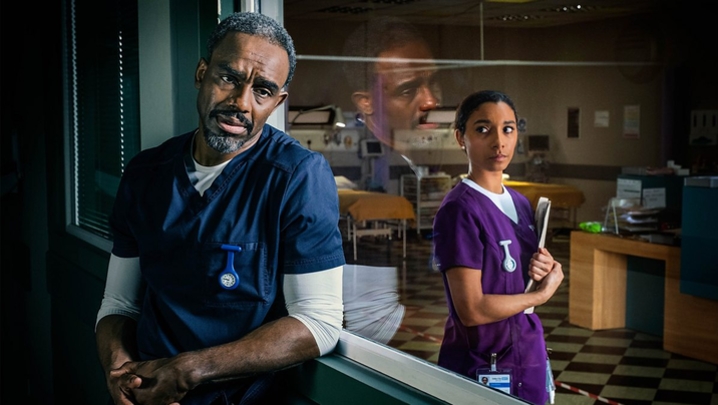Polly Hill has risen through the ranks to head BBC Drama, with an estimated budget of £200m. Maggie Brown assesses her biggest challenges
In a smooth transition, the personable Polly Hill has become the BBC’s new Controller of Drama Commissioning. She takes over without so much as dropping a script from LA-bound Ben Stephenson.
Her new job is one of the most coveted and powerful positions in UK television. Hill is responsible for the wide range of drama across BBC One and BBC Two, an estimated budget of £200m annually, spiced with the challenge of devising a new online policy, principally for BBC Three. She also has oversight of EastEnders, Casualty and Holby City.
But one of the key strengths that marks her out is that she was born into the world of television and stage drama. She is the daughter of actor Dave Hill, whose lengthy credits include playing proud, flirtatious Yorkshireman Bert Atkinson in EastEnders, between 2006 and 2007.
"I was brought up around theatres and new plays… and have a continuing love of it," she says. "My dad was part of the Bill Bryden Company for many years, which had a huge impact on me."
Asked to name her favourite books, she replies: "Most reading is for work." Hill can zip through 10 scripts a day.
She joined the BBC 10 years ago and has been at the heart of the drama department’s success, most notably its renaissance on BBC Two. Many date this from The Shadow Line, executive produced by Hill four years ago.
She steps up to the top role following five years as Head of Independent Drama, so one of her early decisions will be to fill her old post. Her commissions were wide-ranging and included The Honourable Woman, Accused, Ripper Street, The Village and Death in Paradise.
Hill describes her last job as "cheerleading for the English independent producing community". This connected her to the most prolific writers and thrusting industry players. It also enabled her to cherry-pick the best ideas – at least, that’s the theory.
She has inherited a stable ship at a tipping point for British drama
Kate Harwood, a former BBC Head of Drama Production, England, regards Hill as "a fellow soul" and her replacement of Stephenson as "signifying continuity. The BBC’s drama has been doing so well that it was not going to bring in an outsider."
Harwood, now Managing Director of Euston Films, adds: "Ben was very collegiate. Polly will know everything that is in the slipstream."
Danny Cohen, Director of BBC Television, says that she was given the job because of her "exceptional track record in delivering outstanding drama", from Wolf Hall and Poldark to The Missing. Respectively, the most acclaimed BBC drama of the year, the most popular, and the most gripping. In other words, Hill played a key part in Stephenson’s successful tenure.
But she will have to grapple with the still fluid situation unleashed by Director-General Tony Hall’s proposal to let BBC Production pitch for external commissions.
Hill’s intuitive style of working (and nose for the popular) is described in intriguing detail by seasoned screenwriter Kay Mellor. She recalls how, following the 2010 broadcast of her play A Passionate Woman, Hill asked to see her.
Mellor prepared three ideas, including In the Club – recommissioned for a second series by BBC One last year.
"As I left, having pitched the ideas, I said over my shoulder that I had another idea, about a group of people who win the Lottery. Polly said, ‘Oh my God, that’s it.’ She knew instinctively."
Mellor duly wrote what became BBC One’s The Syndicate. She then moved on to In the Club. A third idea is in development.
"She is absolutely the right person for the job," adds Mellor. "It was a natural progression for her. She knows when to give a note and when to leave alone. To me, this shows she is confident and trusts the creative that she has commissioned."
Peter Kosminsky, Director of Wolf Hall, says simply: "She values writers."
Greg Brenman, who executive produced The Honourable Woman and Ripper Street, elaborates: "She has a love of writers, and gets totally immersed, but can also see [a prospective drama from the viewpoint of] a member of the audience. She has massive passion. She is not embarrassed about asking difficult questions. In the edit, she will say if something doesn’t make sense."
He continues: "Ripper Street was boysy and violent. She doesn’t try and homogenise everything into a mulch. Polly is very good at understanding a unique property."
Kosminsky adds: "I don’t want to suggest she was uncritical. What we all felt, every step of the way, was that Polly was behind us. She isn’t like a faceless bureaucrat."
This was particularly noticeable in the edit. He explains that the version of Wolf Hall that he shot was very different to that on the page and not in exactly the same order.
"Instead of sitting there puzzled, she said: ‘Oh, I see why you’ve made that....’ Instead of feeling that she was the dead hand of the BBC, you felt she would go into battle on your side. I can’t tell you how important that is."
But a disgruntled independent puts a different spin on her passion. "She is passionate about the things she likes and knows, but I find it very hard to get anything away. I repeatedly came to her and said, ‘Here’s a new writer’, but it cut no ice.
"If you are Jimmy McGovern, Tony Jordan, Kay Mellor, Billy Ivory – or, now, Hugo Blick – it is fine. She gets popular drama, but she has quite a closed mind."
Mellor provides a slightly different take. She passed Hill some edgy material that her company, Rollem, had commissioned from a woman in Leeds, who had written about the council estate she had grown up on.
Hill said she would love to meet the new writer, though her work was not quite right for the BBC. "It will never be a flat no with Polly," says Mellor. And everyone agrees that she is good at answering her phone.
She doesn’t try and homogenise everything into a mulch. Polly is very good at understanding a unique property
Hill, a 44-year-old mother of two, says that, at primary school, she was obsessed with Grease, which started her love of musicals. She was particularly influenced by medieval mystery plays, "which I went to whenever I could"; Bryden directed an acclaimed National Theatre version of part of the cycle in 1985.
The shows she loved when growing up were House of Cards, Widows, Boys from the Blackstuff, Moonlighting and classic black and white films. More recently, outside of the BBC, it has been The Good Wife, Five Daughters and Modern Family.
Brought up in London, Hill studied drama at Manchester University (as did her predecessor, Stephenson). Her first break came from producer Verity Lambert – "an inspirational woman".
She graduated to script editing on EastEnders, recruited by then-Executive Producers Corinne Hollingworth and Jane Harris. "The ability to engage creatively with the writer is at the heart of what we do, so I value my training as a script editor," says Hill.
In 2005, she joined BBC Drama, rising by 2008 to Commissioning Editor/Executive Producer. Her EP credits include Inspector George Gently, The Ark, New Tricks, Remember Me, Death Comes To Pemberley, The White Queen, Bonekickers, The Gruffalo, Hustle and The Silence.
At the same time, she has had to cope with pressure on BBC budgets and the need to raise more money through international co-productions.
Several leading independent producers confirm that Hill’s name is already well known in US TV circles.
One priority is to broaden the range of BBC One drama in order to appeal, particularly, to younger, more diverse and more male-skewed audiences.
Then, there is BBC Three’s online drama offering and, perhaps, an opportunity to create a kind of British Netflix. "She has inherited a stable ship at a tipping point for British drama," says Harwood, who underlines the rise of on-demand drama that will compete for the BBC’s audiences.
Some sceptics wonder if Hill will be tough enough to dump established shows to make way for the new. The consensus view is that "it will take time for her to acclimatise – look how Ben changed" – but that she will rise to the challenge.






